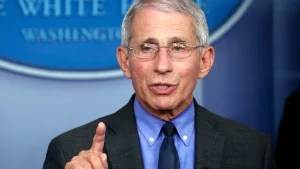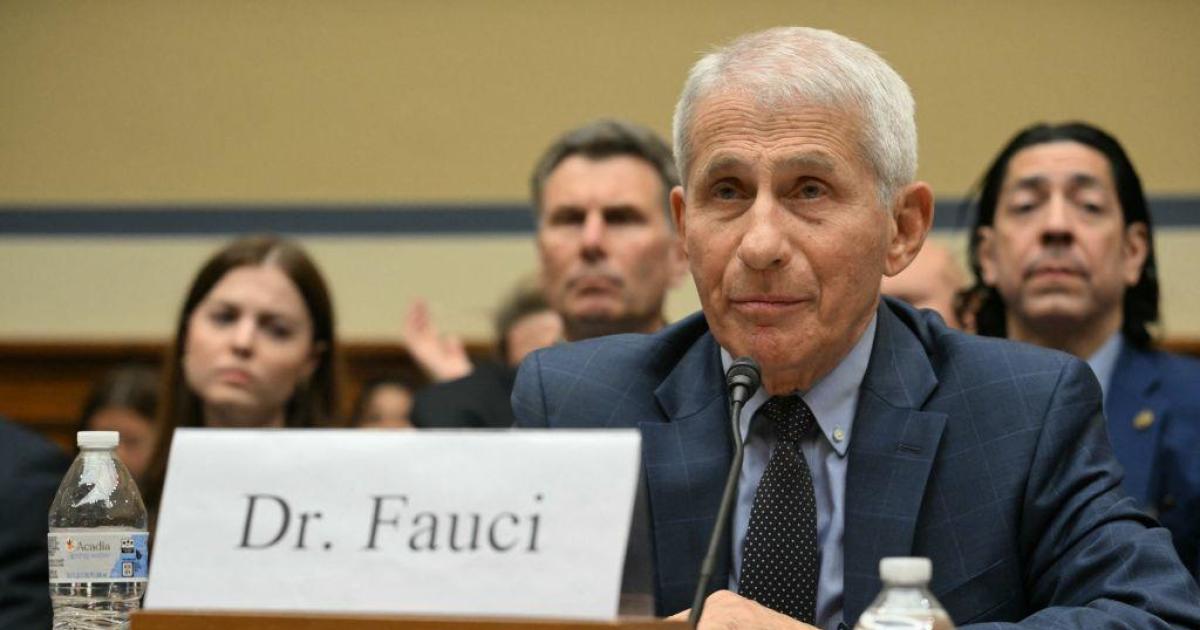Allegations and Defense
Use of Personal Email
Republican lawmakers questioned Fauci about allegations that he used personal email for official business to avoid oversight. Fauci denied these allegations, stating unequivocally, “I never conducted official business using my personal email.”
Shifting Guidelines
Fauci explained the evolving guidance during the early months of the pandemic. He emphasized the importance of adapting recommendations as new scientific information became available. “When you’re dealing with a new outbreak, things change,” Fauci stated, underscoring the necessity of using the scientific process to update guidelines as more data emerged.
Origin of COVID-19

Wuhan Institute of Virology
A significant portion of the hearing focused on the theory that COVID-19 originated from the Wuhan Institute of Virology in China. Fauci testified that it was impossible for the viruses studied at the Wuhan Institute under a National Institutes of Health (NIH) subgrant to have led to COVID-19. However, he maintained an open mind about the virus’s origin, acknowledging that other activities in China could not be accounted for. “The viruses that were funded by the NIH could not be the precursor of SARS-CoV-2,” he asserted.
Gain-of-Function Research
Dr. Anthony Fauci defended the $120,000 grant allocated to the Wuhan Institute, clarifying that it was for research on emerging infections and not for dangerous gain-of-function research. He reiterated, “I would not characterize it as dangerous gain-of-function research.”
Actions During the Pandemic
Public Health Measures
Fauci highlighted the critical actions taken to save lives during the pandemic’s early stages, including promoting social distancing, mask-wearing, and vaccination. He argued that without these measures, the death toll in the U.S. could have doubled. “There very likely would have been another million people who would have died,” he testified.
Vaccine Efficacy and Communication
Fauci discussed the initial understanding of the COVID-19 vaccine’s efficacy. Early data suggested the vaccine prevented infection and transmission, but later findings showed that its protection against infection was limited in duration, while its protection against severe disease and hospitalization was more prolonged. “We did not know that in the beginning,” he noted, explaining the evolving nature of scientific knowledge.
Threats and Harassment
Personal Safety
Michigan Democratic Rep. Debbie Dingell questioned Fauci about the threats he and his family faced due to misinformation about COVID-19. Fauci revealed that credible death threats led to the arrests of two individuals and necessitated constant protective services. “It’s required my having protective services, essentially all the time,” Fauci testified, describing the ongoing harassment as “very troublesome.”
Political Controversy
Partisan Attacks
The hearing featured heated exchanges, notably with Georgia Rep. Marjorie Taylor Greene, who refused to address Fauci as “Doctor” and instead called him “Mr. Fauci,” further alleging that he should be jailed without presenting any evidence of crimes. Maryland Democratic Rep. Jamie Raskin defended Fauci, calling him “an honorable public servant” and criticized the Republican investigations as baseless attacks.
Conclusion
Dr. Anthony Fauci’s testimony before Congress highlighted the complexities and challenges of responding to an unprecedented pandemic. Amid intense scrutiny and political controversy, Fauci defended his decisions and the evolving scientific guidelines that shaped the U.S. response to COVID-19, emphasizing the importance of adapting to new information to save lives.




